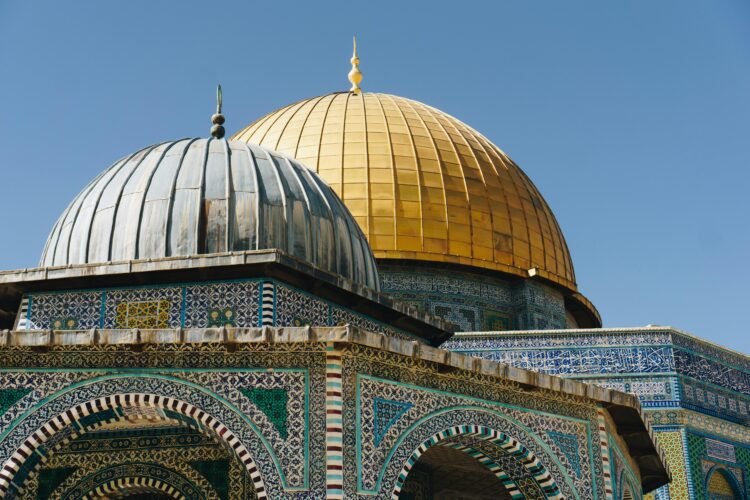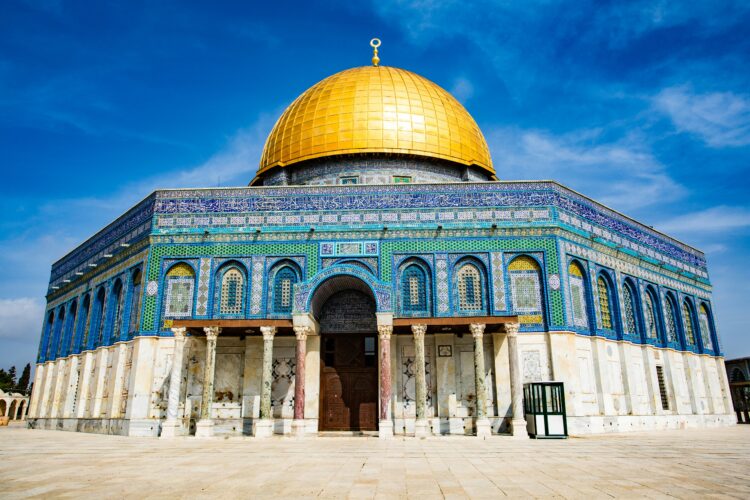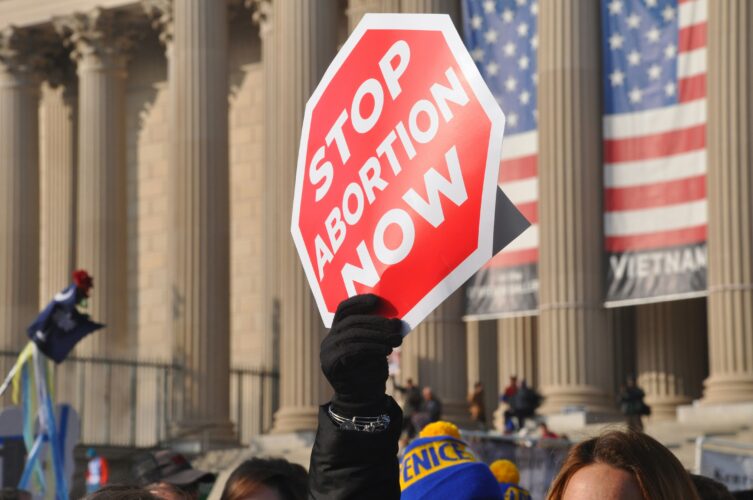ACCOUNTABILITY
My calling and part of my life quest has been to establish good government and accountability in the Messianic Jewish world. This was accomplished in two organizations I led, the Union of Messianic Jewish Congregations and in Tikkun America. Both have been effective. I have also had a good influence in the Church world. I have written on government. I also wrote a book that has been a positive influence, Due Process, A Plea for Biblical Justice Among God’s People.
I grew up in a national and world association of congregations (45 million at that time) that were organized into a structure of mutual accountability in each city, region, and nation. When moral and doctrinal issues arose, there were eldership councils, or courts of appeal, that would resolve these situations.
When I was 18, there was a conflict in my congregation with the pastor. They appealed to the regional authorities in the denomination and were not treated well. I was at the congregational meeting with these authorities. The members were offended. Most of the elders, Sunday school teachers, and members left and formed a new congregation. (1966) I was a charter member. I remember the first meetings and the heady feeling that we were in the right. We thought that we now were going to have a more truly biblical organization, an independent congregation governed by elders elected by the democratic vote of the members. We thought we were returning to a more first-century way of congregational organization, free from the interference and control of denominational leadership. This congregation has had a record of good ministry and integrity and for many years was pastored by one who became a good friend. I do credit the fact that there are good independent congregations that do good work and have integrity.
However, I was too young and uninformed about government in congregations to realize the dangers and the importance of being connected to something larger where courts of appeal can deal with issues too hard for local leaders. When I was at Wheaton College in Illinois, I connected to an independent congregation that went into terrible heresy. There was no appeal for higher authorities to come and help to resolve the issues. Many friends and some family members were shipwrecked in their faith in this congregation. Thankfully, Patty and I left when the heresy was just in its beginnings, well before it was full-blown. When I sought ordination, I returned to my roots and was ordained in an association with mutual accountability and strong standards. I no longer believed that independent congregations represented the biblical model. Rather, I believed in congregations and leaders in mutual accountability with a layer of appeal for serious issues beyond the capability of the local eldership. I now believe that this is much closer to the biblical model where we see the congregations planted by apostles still accountable to the planting apostles and accountable to the apostles in Jerusalem to resolve a major dispute (Acts 15). This model gives us more than a hint that there has to be something beyond mere local independent congregations.
Such higher accountability structures hold leaders accountable to basic standards of morals and biblical teaching which I call broad orthodoxy. Many associations also require congregations and leaders to maintain their distinctives which include more than broad orthodoxy, such as Baptist requiring belief in water immersion and Pentecostals requiring belief in the baptism in the Spirit, speaking in tongues and the supernatural gifts of the Spirit for today.
HOLDING LEADERS ACCOUNTABLE AND PROTECTING LEADERS FROM FALSE ACCUSATIONS AND ATTACKS
Associations that have a good government hold leaders accountable to its standards, but also protect leaders from false accusations. In my 51 years in governing as a pastor and as a trans-local association member and leader, I have found that there are more cases of leaders being cleared from false accusations and then finding the accusers guilty of false accusations. Sometimes the leaders were guilty as charged in very significant sin or error. Sometimes the accusations were tearing a congregation apart and the false accusations were spreading and being believed. The situation was beyond a local eldership to handle. Our outside appeal leadership came and heard the cases and were able to re-establish trust for the leaders. It is wonderful to look back and see how this was successful in many situations. Several congregations were rescued from destruction and prosper today. In a very few cases leaders had to step down, be restored or be removed permanently. Much damage was averted in those cases!
History of Accountability
The Reformation leaders reacted against the Catholic Church and its hierarchical structures which often made the Pope and bishops beyond real accountability. They exercised almost royal leadership. Different models were embraced after the Reformation; the mutual accountability of the college of bishops (Anglicans, Methodists), the congregationalist model of accountability to all the members voting and then accountability to the larger association, and the Reformed model of a lead elder in mutual accountability to a plurality of elders at the local level, city level, regional level, and national level. This last model was the least subject to abuse by leaders. It was a model of mutual submission. Some Pentecostal denomination and new stream charismatic associations have also embraced this government structure. I might note that the government of ancient Israel foreshadows this with the elders of the gate and appeal to Jerusalem for cases that were too difficult.
We cannot look to Rabbinic Judaism for our model. Rabbinic Judaism produced very different models over the course of its history from the royal master of the dynastic ultraorthodox leader to the democratic models of Reform Judaism but whose Rabbis have some limited accountability in its association of Rabbis, to those who have bet din (courts) in modern Orthodoxy and associations of congregation with standards for Rabbis. The last is closer to a biblical model. However, we have to look to the New Covenant Scriptures for our applications today.
Situations we Face today
One of the characteristics of our day is that so many have become part of the independent church movements. In the 19th century such congregations, without higher accountability and standards would have been considered rogue. This included approving qualifications for pastors. There are royal pastors types who are very gifted and lead large congregations but whose elders are mere advisors and certainly do not practice real mutual accountability. There are royal apostles who lead networks and congregations are accountable to them, but they have such control with ability that they would never be opposed by the team leaders of the network. They themselves are not accountable.
We recently were notified of a scandal in a prominent ministry. We still do not know for sure what has happened, the extent of guilt, the guilt of others involved and so much more. Why does this keep happening. This happens with charismatic and non-charismatic Evangelicals? I can give examples in both. There are many reasons, but I want to write on one. It is the rejection of the wisdom of the historic Protestant denominations. These denominations had clear standards for vetting ministry leaders and maintained strong accountability structures. In addition, some of the major Pentecostal denominations also have embraced these standards.
After mainline denominations did not fully embrace the charismatic renewal of the 1960s to the 80s, there was an arrogant “Plague on your house” response to these denominations. New independent congregations and streams were founded. Some of the new streams that connected congregations in networks were solid in their vetting and accountability structures (I can name some) and some were not and embraced a royal pastor model or a royal apostle model for the network. Some did so in actual government documents and some, though with better government documents, acquiesced to a totally controlling but gifted leader. Some prophecies were given that grieved me, that the day of the denominations was over. I on the other hand believed that they all could be renewed if they maintained a classic Evangelical confession. So much of the projection of the “new churches” and ministries shows this root of arrogance. I am part of one major ministry, Toward Jerusalem Council II, that teaches that when the Church taught it had replaced Israel, replacement theology came into the DNA of the Church. Now each new movement claims to replace the last movement from which it came. Of course, such attitudes and teaching cannot lead us to the John 17:21 unity for which Yeshua prayed.
What has this spirit of independence produced? Multiple scandals both sexual and financial! There is no court of appeal. Very large churches and ministries have gone down with accusers having no appeal court to which the accused will submit. The situation is therefore handled by public accusations, gossip and today by social media exposure. Some use secular courts contrary to the exhortations in I Cor. 6 and Matthew 18:15 ff. to constitute a court of those who can judge such matters. For the world outside of the Church, the Church is considered a bunch of crooks, hypocrites and worse. Yes, the scandals are a minority of churches and ministries, but it seems so much larger due to media magnification.
I ask a question. Where is a big scandal in the denominations that have stayed biblically orthodox? You do not hear of such because it is so rare, though not non-existent. In the Presbyterian Church in Chicago all salaries and congregational budgets were presented annually to over 400 elders representing over 200 congregations. Disclosure and transparency were the rule. Can you think of any scandals in the conservative Presbyterian denominations? I can’t.
Were I to state my preferred government, it would be a denomination structure that gives great freedom for ministry expansion by those who give the gifts to multiply but who are still accountable to the association. It would be an association that embraces five-fold ministry. We see this today with the Pentecostal Holiness Church and also in the Four Square Churches association.
I know that there are many ways to have an accountability and a strong connection to solve this problem. A five-fold network of congregations should require all to subscribe to appeal to the leadership team or a judicial board that is appointed for such appeals. This has been our practice in Tikkun for some 40 years. The Dove Network under Larry Kreider, with hundreds of churches in North America, Central America, and Africa where there are about 200 more, maintain oversight and appeal for their congregations. Beyond that if there is serous accusation against the leadership of the network, they maintain a group of outside elders that will be brought into judge the matter. I was privileged to serve them in this way for ten years. There has never been a scandal in any Dove Church and probably never will be. Those who join are joining in a commitment to accountability beyond the locality.
I dream that someday in revival and the embrace of the power of the Spirit that God will bring together the congregations of the city into structures for mutual accountability. Does this fit the prayer for unity of Yeshua (John 17:21). I wrote a little paragraph for a beginning, a minimal standard to overcome independence.
Serious moral or doctrinal charges against the lead pastor/elder or one who has ministry beyond the local church are too difficult for a local eldership and should be handled by an outside group, either in an appeal to the leadership of an association that they are part of, or another group of elders called together who can serve as an objective group to handle the situation.
I believe this standard should also be embraced by non-congregational ministries as well, an appeal beyond their board. It can be officially placed in by laws and constitutions.
The historic Protestant churches including the Pentecostals and Charismatic streams that have learned from history have established the following standards.
- That churches are to be related and mutually accountable though joining in mutual accountability associations and that their leaders come together in mutual accountability.
- That the royal leader idea is to be rejected and the leader of a congregation or association should lead in mutual accountability with other leaders.
- That there is a real eldership over every congregation and every sodality (specialized missional community).
- That there is a higher level of appeal from a local eldership to an eldership that is called upon to handle accusations against the senior leader or a group of leaders that is too difficult for local elders to handle. This is an appeal court of the Church.
- That there is transparency for finances. All is disclosed.
- That leaders are seriously vetted for moral integrity, marriage and family quality, and basic knowledge of the Word of God.
Some years ago, the famous Derek Prince said to me. “Good leaders can sometime do well in spite of a bad government structure. Bad leaders can sometimes get around a good government structure. But these are not reasons to not have the best government structures that we can.” For Derek Prince, good government and accountability greatly mitigates against leadership abuse and gross sin in the leadership.
I have not addressed the issue of the reason leaders fall into abusive patterns of leadership and then also fall into sin. A great book on this is The Other Half of Church, by Jim Wilder and Michael Hendricks. It deals with the self-centeredness and the somewhat narcissistic problem in leaders. Leaders who learn to walk in mutual humidly, mutual correction and mutual submission are a great protection for the people of God. However, that is for another paper.









